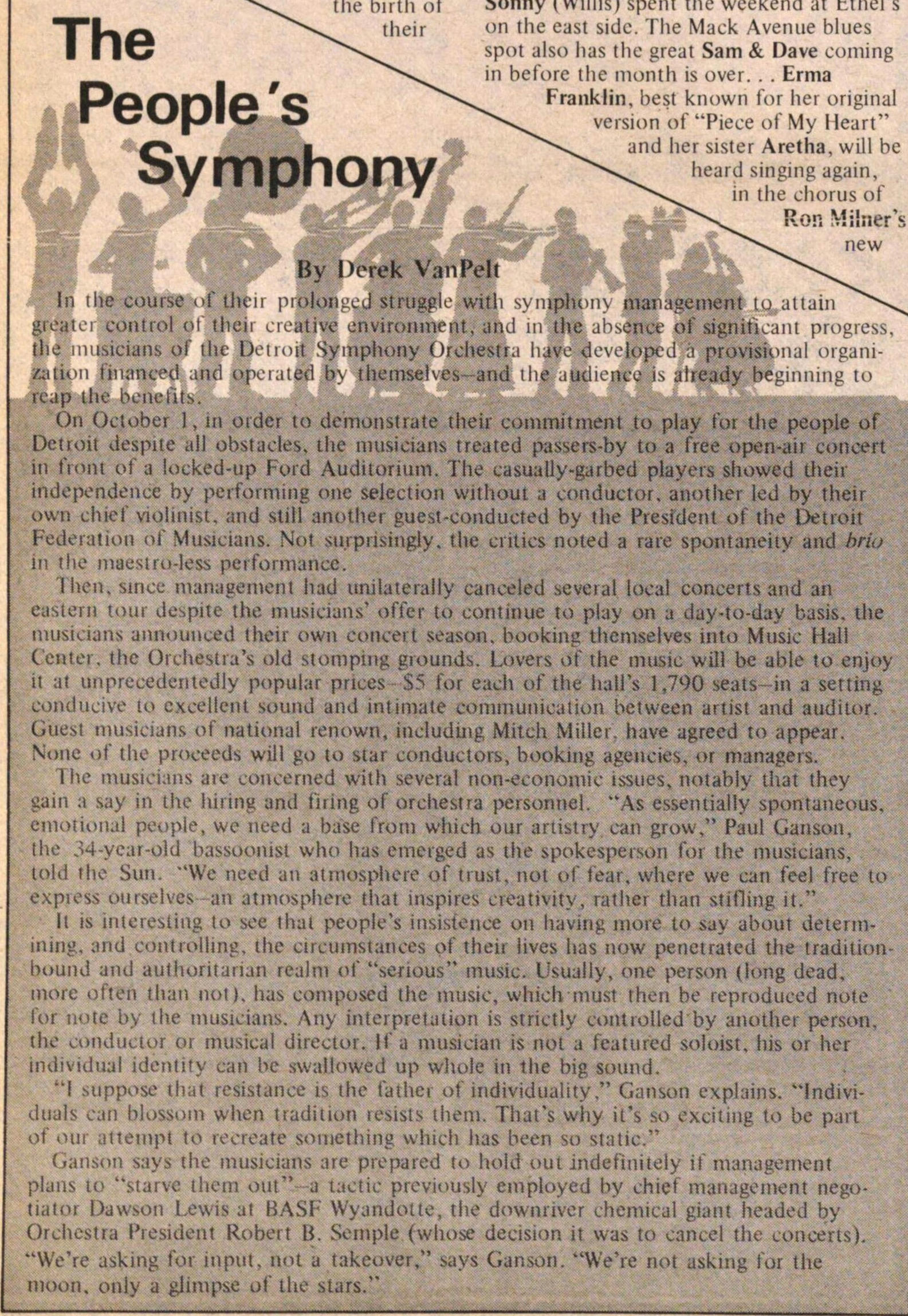The People's

In the course of their prolonged struggle with symphony management to attain greater control of their creative environment, and in the absence of significant progress, the musicians of the Detroit Symphony Orchestra have developed a provisional organization financed and operated by them selves- and the audience is already beginning to reap the benefits.
On October 1, in order to demonstrate their commitment to play for the people of Detroit despite all obstacles, the musicians treated passers-by to a free open-air concert in front of a locked-up Ford Auditorium. The casually-garbed players showed their independence by performing one selection without a conductor, another led by their own chief violinist, and still another guest-conducted by the President of the Detroit Federation of Musicians. Not surprisingly, the critics noted a rare spontaneity and brio in the rnaestro-less performance.
Then, since management had unilaterally canceled several local concerts and an eastern tour despite the musicians' offer to continue to play on a day-to-day basis, the musicians announced their own concert season, booking themselves into Music Hall Center, the Orchestra's old Stomping grounds. Lovers of the music will be able to enjoy it at unprecedentedly popular prices $5 for each of the hall's 1,700 seats in a setting conducive to excellent sound and intimate communication between artist and auditor. Guest musicians of national renown, including Mitch Miller have agreed to appear. None of the proceeds will go to star conductors, booking agencies, or managers.
The musicians are concerned with several non-economic issues, notably that they gain a say in the hiring and firing of orchestra personal. "As essentially spontaneous. emotional people, we need a base from which our artistry can grow," Paul (Janson, the 34-year-old bassoonist who has emerged as the spokesperson for the musicians, told the Sun. "We need an atmosphere of trust, not of fear, where we can feel free to express ourselves---an atmosphere that inspires creativity, rather than stilling it."
It is interesting to see that people's insistence on having more to say about determining, and controlling. the circumstances of their lives has now penetrated the tradition bound and authoritarian realm of "serous" music. Usually, one person (long dead, more often than not), has composed the music, which must then be reproduced note for note by the musicians. Any interpretation is strictly controlled by another person. the conductor or musical director. if a musician is not a featured soloist, his or her individual identity can be swallowed up whole in the big sound.
"I suppose that resistance is the father of individuality," Ganson explains. "Individuals can blossom when tradition resists them. That's why it's so exciting to be part of our attempt to recreate something which has been so static."
Ganson says the musicians are prepared to hold out indefinitely if management plans to "starve them out"' ---a tactic previously employed by chief management negotiator Dawson Lewis at BAST Wyandotte, the downriver chemical giant headed by Orchestra President Robert B. Semple (whose decision it was to cancel the concerts). "W'e're asking for input, not a takeover," says Ganson. "'We're not asking for the moon, only a glimpse of the stars."
Article
Subjects
Freeing John Sinclair
Old News
Ann Arbor Sun